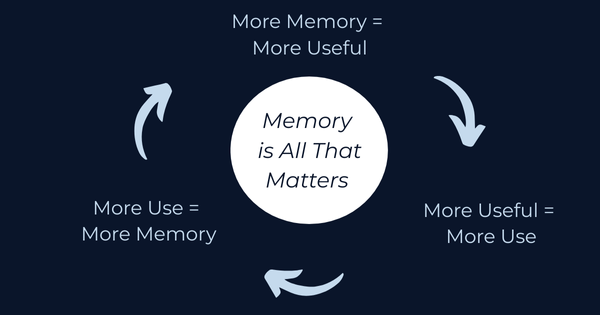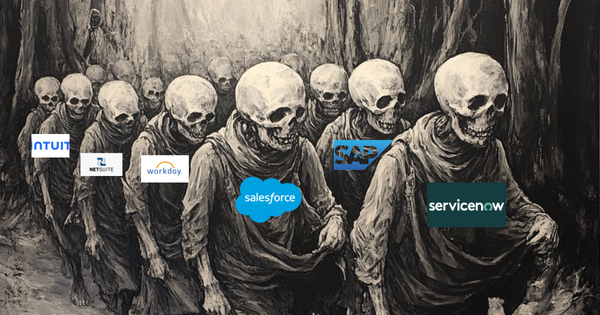We're All Serfs in Internet Land
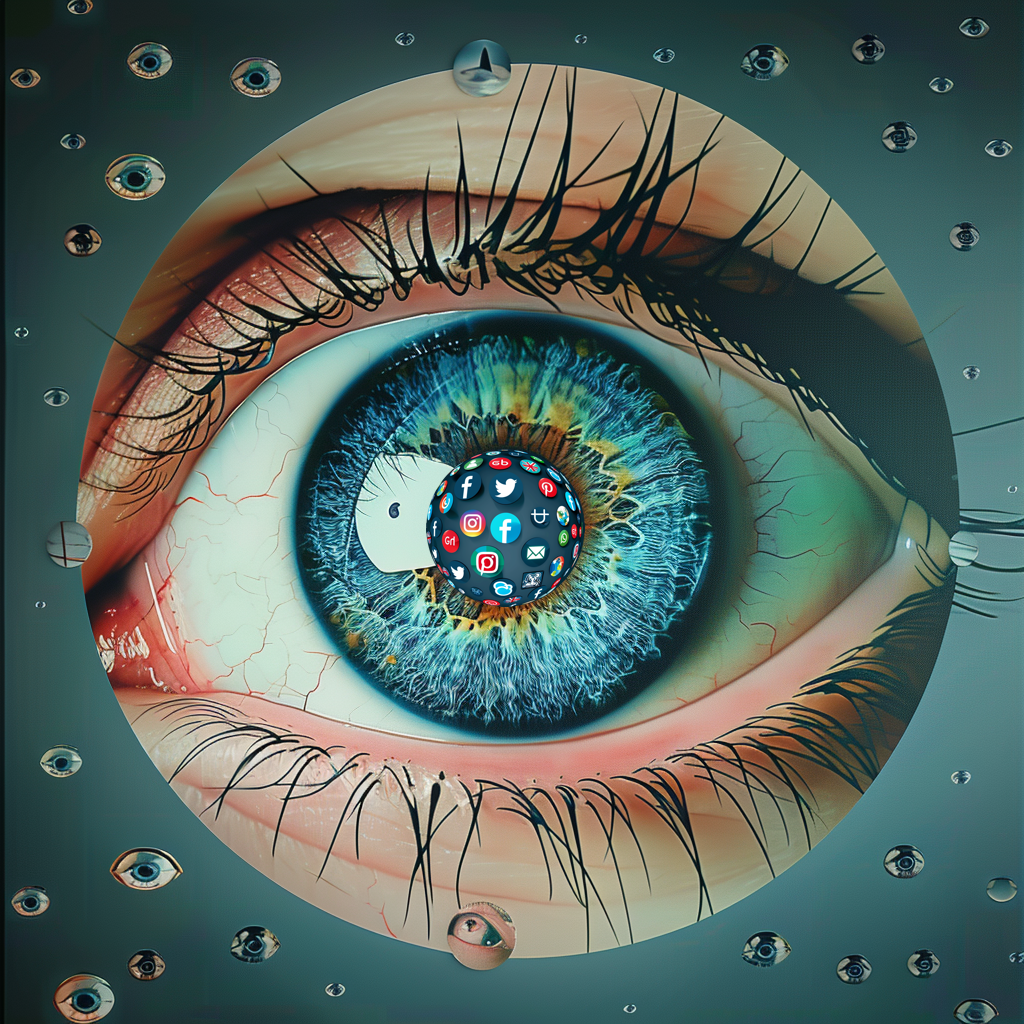
Imagine a world where you can’t own anything.
Your only option is to rent.
And If you don’t rent products from the same company, they can’t be used together.
Want to wear clothes while driving?
You have to rent them from the same company that owns your car.
Rent your house from a different company than your car?
You have to change your rental clothes, when leaving your rental house, to drive your rental car.
Oh and companies change their rental agreements all the time…..with zero notice.
This world exists
A serf is someone who is “bound to the land and subject to the will of the landowner.”
And increasingly, we’re all serfs in internet land.
Don’t see it?
Look a little closer:
Want to use the app you bought on your iPhone on your Google Tablet?
Nope.
You only “own” that app in the land of Apple.
Ever wonder why we need so many different apps to communicate in the online world?
We don’t need 5 phones to call people in the offline world.
Our digital overlords want us bound to their land.
So they make it difficult for us to communicate outside of it.
It’s not ours, it’s theirs.
We’re told we own the photos and other content we post on social media platforms.
But also that they can do pretty much whatever they want with it.
That includes taking the majority of the money earned from “our” posts.
Does that sound like ownership to you?
We don’t even own our identity online.
That’s why we start at 0 every time we join a new network.
Who Cares?
You probably don’t think much about digital property rights.
Medieval serfs probably didn’t think much about physical property rights either.
Not having them is all they ever knew.
It’s all many people know online as well.
That’s why our modern day lords don’t have to force us into digital servitude.
We go willingly.
We don’t understand what we’re giving up.
But have you ever wondered why companies that increasingly own “our” online world are worth trillions?
I’ll tell you:
It’s because we live in a knowledge economy, and they control the knowledge.
And where did they get all that knowledge?
They got it from us.
Can you hear me now, serf?
Will we own AI, or will AI own us?
Digital property rights are about to get a lot more important.
A new super intelligence is being invented.
It lives in the online world I just described.
And if we continue on the path we are on now we won’t own AI….it will own us.
But there is another path.
Digital freedom used to be the default.
Web domains like DaveWaring.com are remnants of an earlier time…A time before digital serfdom.
DaveWaring.com is my website, I own it.
And within the bounds of the law, I can do whatever I want with it.
That’s because my website is built on the open protocol networks that launched the internet.
And those protocols are owned not by a company, but by a community.
Protocol Network
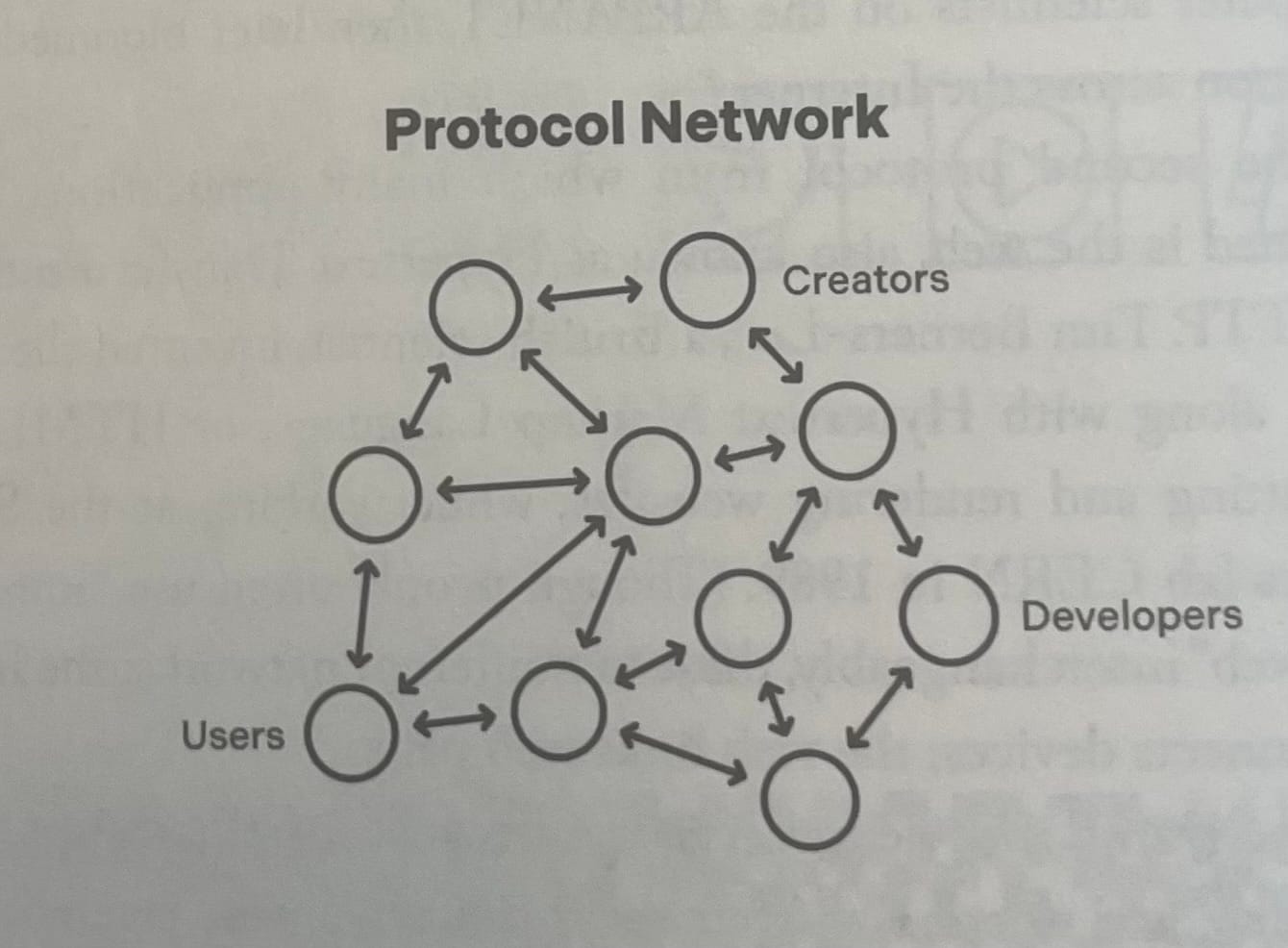
Protocol networks are great, but they have a weakness.
They don't have a built in funding mechanism.
This makes it difficult to fund their launch and ongoing development.
Enter the corporate network
A major reason companies exist is to bing together and generate funding for projects.
So companies stepped in to fill the gaps left by community run protocol networks.
Corporate Network
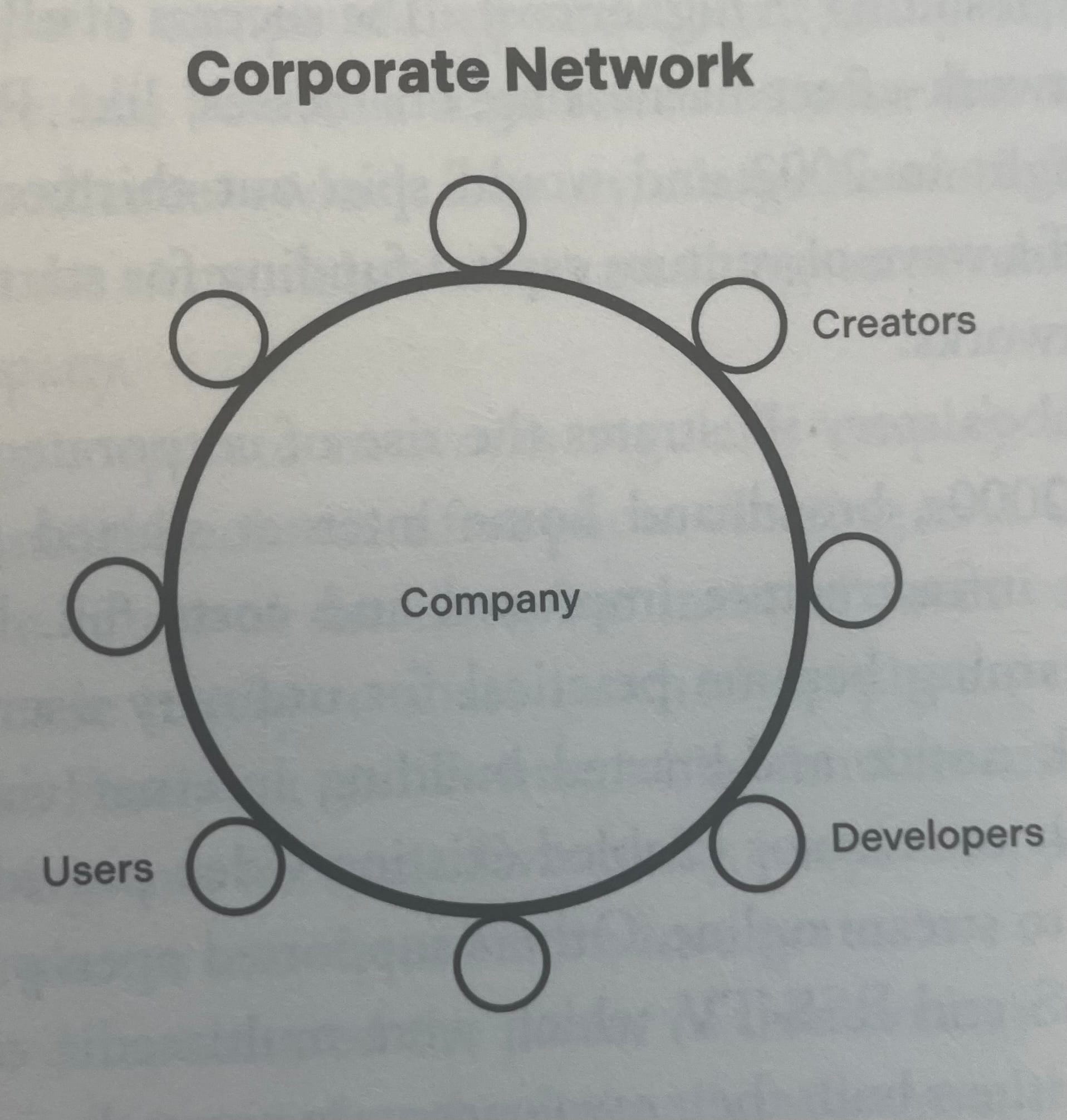
For a while all was well, and in many ways it still is.
Corporate networks have given us:
- Access to limitless free knowledge and entertainment via networks like Youtube.
- The ability to stay connected with distant friends and family via networks like Facebook.
- A super computer full of apps in our pockets via the iPhone and Apple’s App Store network.
They’ve given well paying jobs to millions of individuals.
And these are just a few of the many positives corporate networks have brought to our lives.
But there’s an issue…
Digital serfdom in the land of corporate countries
The more people that join a network the easier it is to attract new users….and the more powerful the network becomes.
At a certain size corporate networks start to look less like companies.
They start to look more like a digital city, or even a digital country.
Now don’t get me wrong.
I’m a capitalist.
Life is pretty terrible in countries where companies are not allowed to thrive.
So as long as companies continue providing outsized value to their customers, I’m all for large companies.
But often times that’s not what’s happening here.
Increasingly, once corporate networks reach a certain size and power, they begin extrating more value than they are adding.
That’s not how capitalist societies work.
That’s how dictatorships work.
Now, the serfs are rising
And we’re backed by a powerful new weapon.
A digital weapon designed to cut the corporate network chains that bind us to digital serfdom.
A new type of network that can be owned and controlled by us, instead of a corporation.
I’m talking about blockchain networks.
Blockchain Network
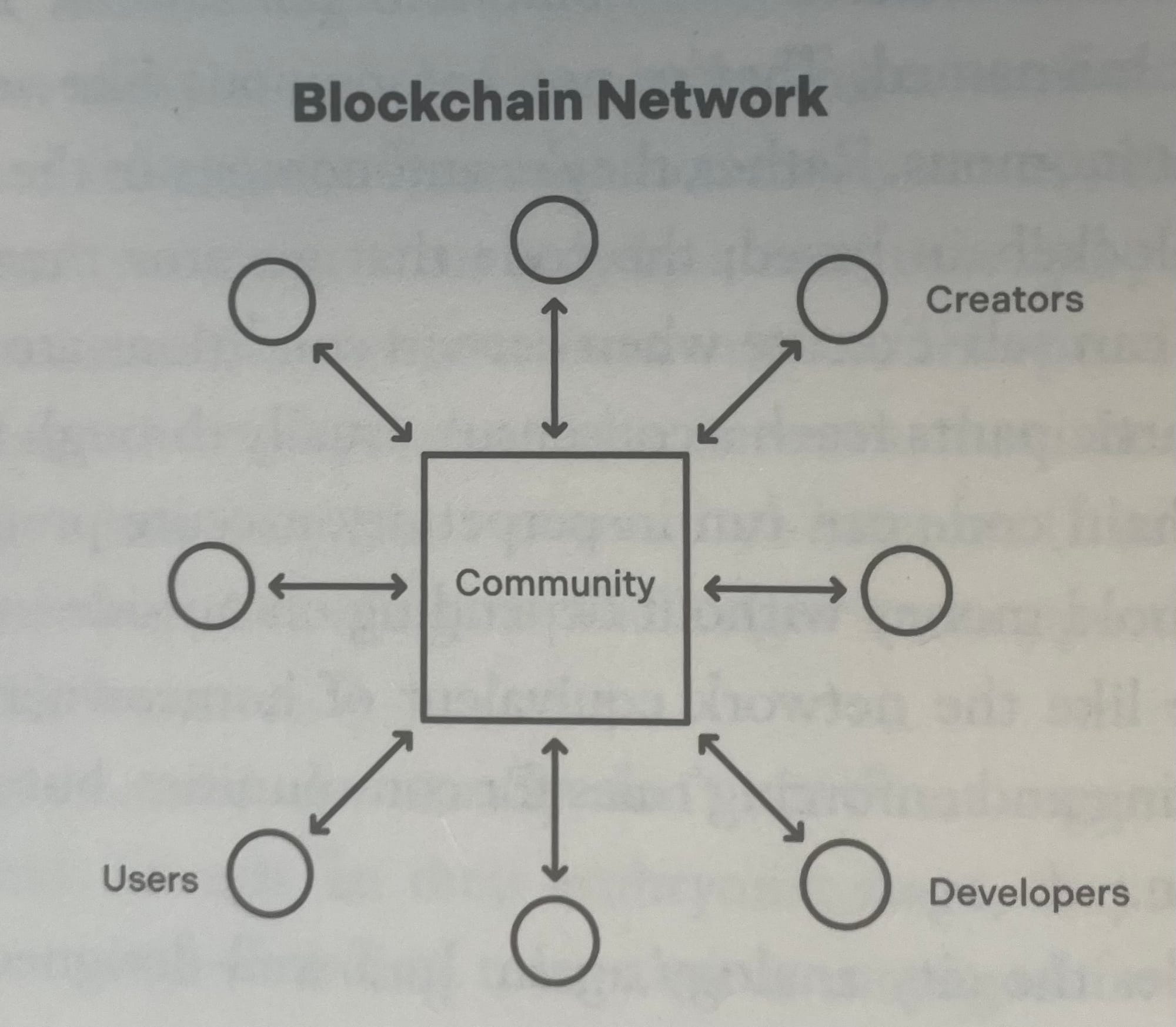
Blockchain networks combine the community ownership of protocol networks, with the funding mechanisms of corporate networks.
They are the best of both worlds.
Our first large, successful example.
The blockchain technology I am referring to is the same technology that allows Bitcoin to exist.
The one that:
- Allows funding of the Bitcoin network
- Allocates value among the Bitcoin network’s millions of participants.
- Tracks ownership of $1 Trillion worth of Bitcoin.
The one that does all this with a community at the center, not a company.
How Companies Fit
Does that mean there’s no companies in the Bitcoin ecosystem?
No, there are lots of them.
It’s simply that no one company controls the entire network that those companies are built on.
In other words, the rules of the game are set by the community, not one company.
Then everyone, including companies, are free to play how they see fit within those rules.
That’s how free market economies work in the offline world.
There’s no reason for it to be different in the digital world.
But I’m not here to sell you on Bitcoin.
I’m here to sell you on this:
The same technology that allows Bitcoin to operate without a corporation at the center, can do the same for any network.
So why are we all still digital serfs then, Dave?
Good question.
Today most blockchain networks are less efficient than corporate networks for most people.
Great, so they don’t work???
Not at the scale we need them to….Yet.
Guess what else took time to work?:
- Personal computers
- Mobile Phones
- The internet
The question we should be asking is not:
“does it work for everyone”
Instead we should ask:
- Do blockchain networks work for anyone? Yes.
- Can they be extended to everyone as the tech improves? Yes.
Early Experiments in Digital Freedom
We’re now seeing the early experiments from pioneers leveraging blockchains outside of just crypto currencies.
The Lens community is working to allow us to own our digital identity, content, and social connections directly, instead of through corporate networks like Facebook.
Blockchain based NFT communities like Sound.xyz are allowing artists to sell their songs and other artworks directly to fans, instead of having to go through corporate networks like Spotify.
The Helium community is working to build community owned wireless networking infrastructure.
The Solana community is working to build a community owned mobile operating system and App Store to free us from the Apple and Google App Store duopoly.
Are these the next Google, Apple, and Facebook?
Probably not.
Most of these and other early experiments will likely fail.
Many will turn out to be complete scams.
But guess what?
The same was true in the early days of the internet.
The failure of most early internet pioneers didn’t mean the internet was a failure.
And the same will be true here.
How we will free more serfs:
Through continued failure.
“I haven’t failed 10,000 times, I’ve discovered 10,000 ways that don’t work.”
- Thomas Edison, on his way to inventing the lightbulb.
Success is reached not via continued success, but through continued experimentation and failure.
What you should do next
If you are interested in learning more, I highly recommend reading Chris Dixon’s new book Read, Write, Own.
Chris’s book is where most of what I cover in this post came from.
He does a great job of breaking things down in more detail, but in a way that is still digestible for non-technical people.
He also covers many of the objections smart people have to these ideas.
As always I am happy to continue the discussion via the comments section or via email at dw@davewaring.com.
Thanks for reading!
Dave



